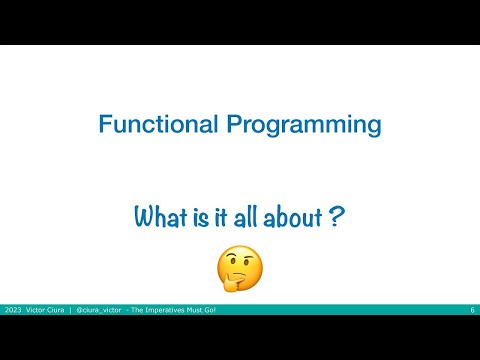By Victor Ciura
Can a language whose official motto is "Avoid Success at All Costs" teach us new tricks in modern C++ ?
If Haskell is so great, why hasn’t it taken over the world? My claim is that it has. But not as a Roman legion loudly marching in a new territory, rather as distributed Trojan horses popping in at the gates, masquerading as modern features or novel ideas in today’s mainstream languages. Functional Programming ideas that have been around for over 40 years will be rediscovered to solve our current software complexity problems.
Indeed, modern C++ has become more functional. From mundane concepts like lambdas & closures, std::function, values types and constants, to composability of STL algorithms, lazy ranges, folding, mapping or even higher-order functions in STL. Did I mention Rust yet?
In this session we’ll analyze a bunch of FP techniques in C and see how they help make our code shorter, clearer and faster, by embracing a declarative vs. an imperative style. We’ll visit the functional parts of current STL, use algebraic data types (ADT) and learn about the new FP stuff coming in the next C standard, like ranges or monadic extensions to std::future, std::optional and std::expected. Brace yourselves for a bumpy ride including composition, lifting, currying, partial application, pure functions, maybe even pattern matching and lazy evaluation.












